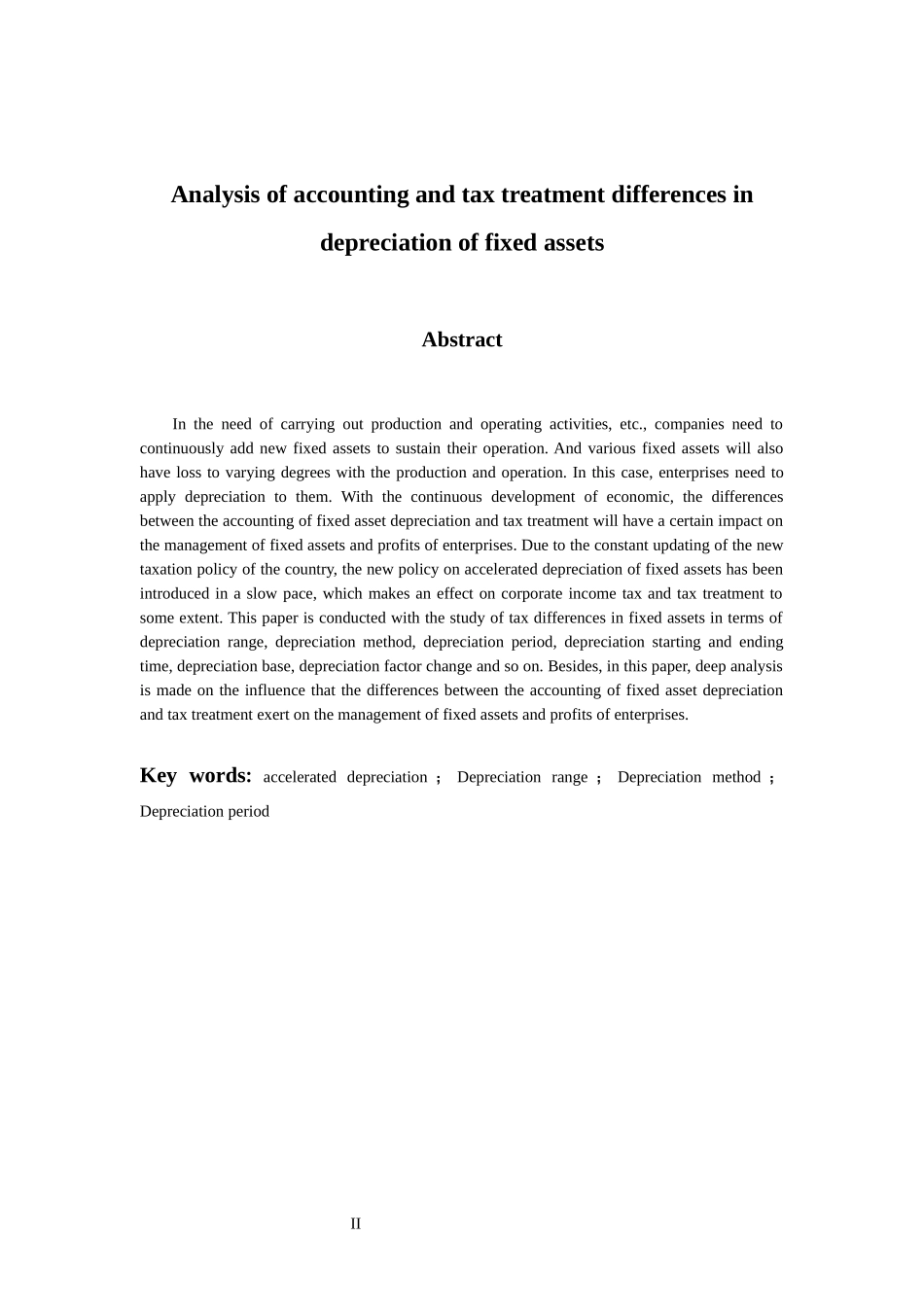I浅析固定资产折旧的会计与税务处理差异摘 要因需进行生产开展及活动运营等缘由,企业需源源不断地新添固定资产来持续自身的运营。而各项固定资产也会随着生产运营而发生不同程度的损耗,此时企业就需要对它们进行折旧。在经济不断发展的形势下,固定资产折旧会计核算与税务处理所存在的差异会对企业的固定资产管理与利润等产生一定的影响。因由国家对税收方面新政的不断更新颁布,关于固定资产加速折旧的新政策也慢慢的浮出了水面,得以出台,此新政对企业所得税及税务处理也产生了一定影响。本文从固定资产的折旧范围、折旧方法、折旧年限、折旧起止时间、折旧的基数、折旧因素变更等方面的会税差异着手研究,深入分析两者间差异对企业的固定资产管理与企业利润等的影响。关键词:加速折旧;折旧范围;折旧方法;折旧年限IIAnalysis of accounting and tax treatment differences in depreciation of fixed assetsAbstractIn the need of carrying out production and operating activities, etc., companies need to continuously add new fixed assets to sustain their operation. And various fixed assets will also have loss to varying degrees with the production and operation. In this case, enterprises need to apply depreciation to them. With the continuous development of economic, the differences between the accounting of fixed asset depreciation and tax treatment will have a certain impact on the management of fixed assets and profits of enterprises. Due to the constant updating of the new taxation policy of the country, the new policy on accelerated depreciation of fixed assets has been introduced in a slow pace, which makes an effect on corporate income tax and tax treatment to some extent. This paper is conducted with the study of tax differences in fixed assets in terms of depreciation range, depreciation method, depreciation period, depreciation starting and ending time, depreciation base, depreciation factor change and so on. Besides, in this paper, deep ana...


